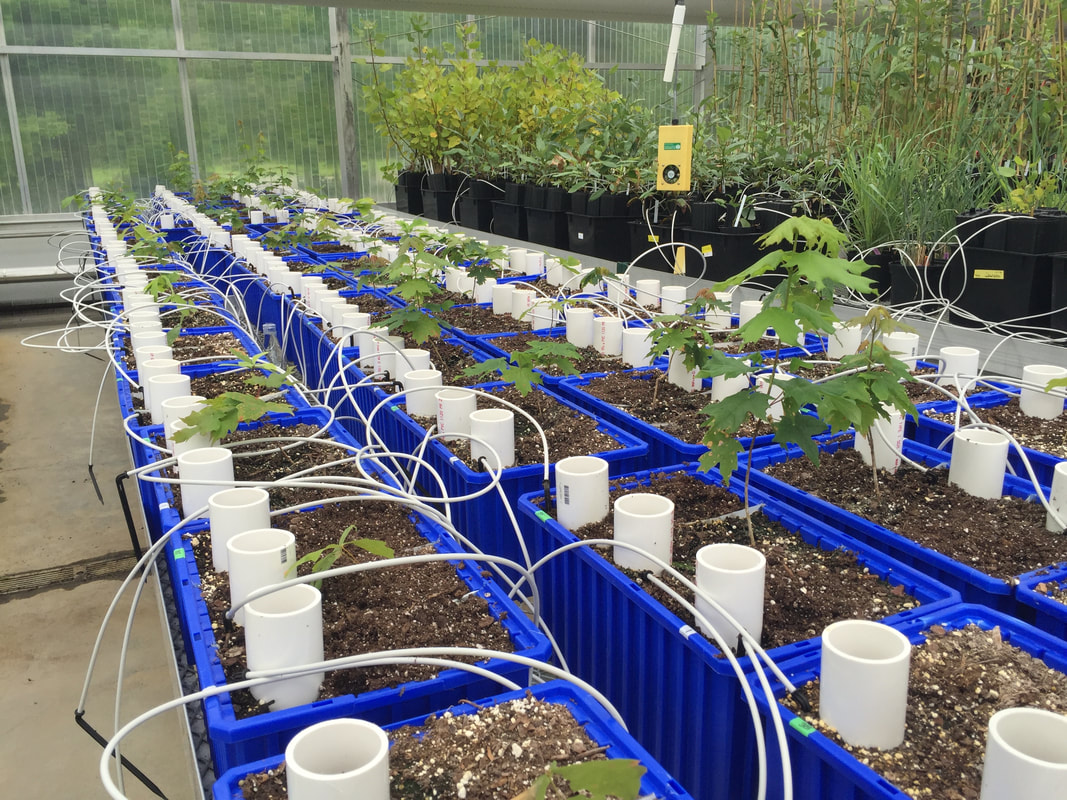|
Extreme precipitation and temperature events are predicted to become increasingly common as our climate continues to change. In collaboration with Jeff Warren in the Climate Change Science Institute at Oak Ridge National Lab, we contrasted the effects of an extreme drought on plant roots, mycorrhizal fungi, and free-living soil microbes. We found that the sensitivity of free-living soil microbes was particularly sensitive to drought, and that this sensitivity was reduced in the presence of arbuscular mycorrhizal -- but not ectomycorrhizal -- fungi. We also found that different components of ecosystem carbon cycling varied in their sensitivity to and recovery from drought. Where as potential soil enzyme activity was relatively unimpaired by the extreme drought, soil respiration was significantly reduced and this reduction continued even after soils were rewetted.
|
Ficken, CD and JM Warren. 2018. Soil respiration sensitivity to drought differs between an arbuscular and an ectomycorrhizal system. Plant and Soil 435(1), 407-422. doi: 10.1007/s11104-018-03900-2.

